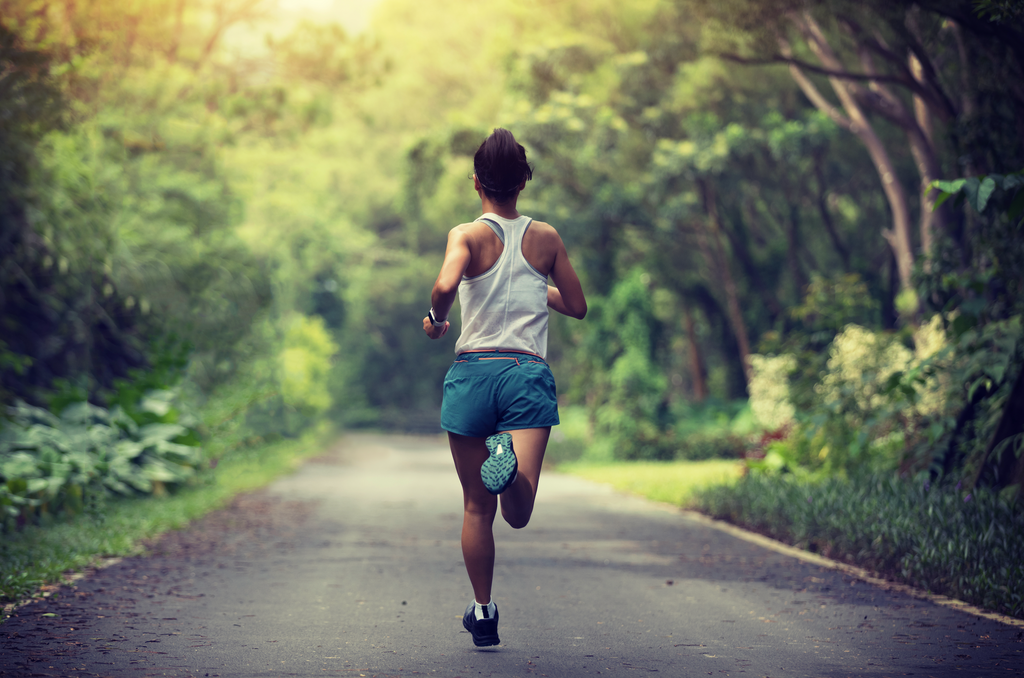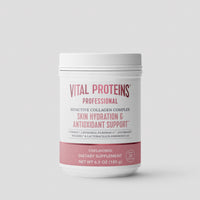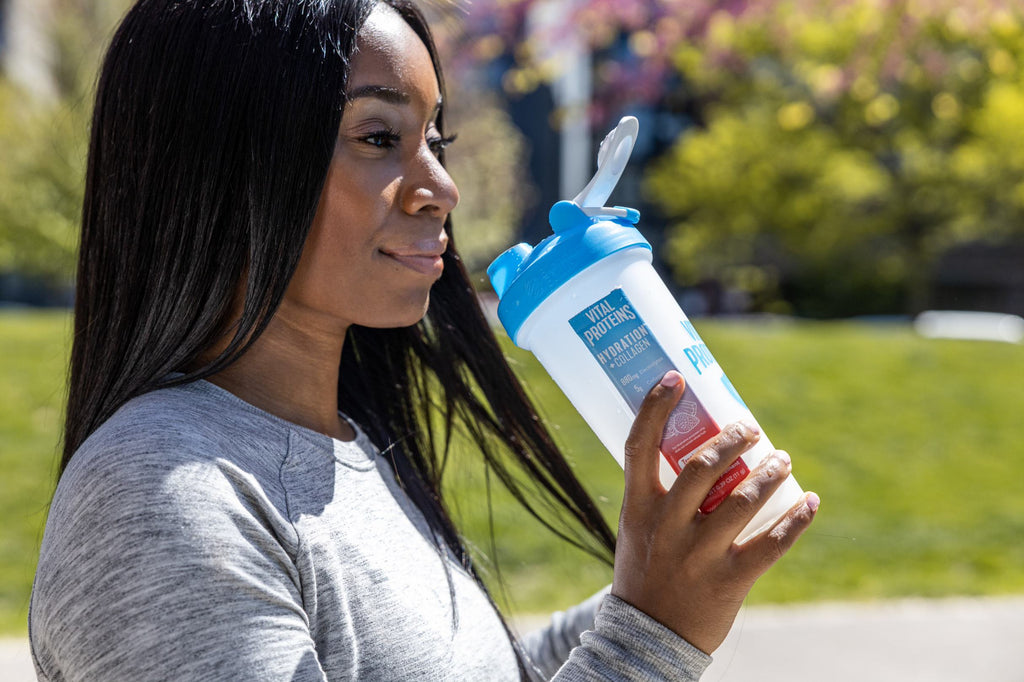Just because we've hit the dog days of summer doesn’t mean you're resigned to to log all your miles on the treadmill. But as the temperatures do begin to soar, it's best to consider adjusting your training.
Starting with the basics, we'll cover how to get yourself out the door and on pace to log your best run ever. Scroll on for more tips for running in the heat.
Vital Note: This article has been made available for informational and educational purposes only. It is not intended to be a substitute for professional medical advice, diagnosis, or treatment. Always seek the advice of your physician or another qualified health provider with any questions you may have regarding a medical condition. Your licensed healthcare professional can best provide you with the diagnosis and treatment of any medical condition and assist you as well in deciding whether a dietary supplement will be a helpful addition to your regimen.

How Can I Run Better In The Heat?
First and foremost, you should focus on running safety. Your body may not be able to adjust to running in hot and humid temperatures if you're dehydrated, not properly trained or aren’t appropriately dressed. Here are a couple things to look for in this event:
Symptoms Of Heat-Related Illness Include:
- Headache
- Dizziness
- Confusion
- Nausea
- Fainting
- Body temperature going above 101°F
Hydration, a pre workout drink and more can keep you safe from the moment you step out the door. Beyond that, beat the heat with these 5 additional running tips (in no particular order):
Related Articles
1. Hydrate & Fuel Appropriately
If you're thirsty, you may already be dehydrated. Start increasing water consumption 4 to 8 hours before, or even start the day with some hydration – prior to a long run.
The American Council on Exercise (ACE) suggests drinking 17 to 20 oz. of fluid about two to three hours before a workout, seven to 10 ounces for every 10 to 20 minutes during exercise, and post-workout replenishing with 16 to 24 oz. of fluid per pound lost. It’s also important to check in with your doctor before changing your diet for your performance.
Set hydration reminders, buy a running belt to secure your water bottles or reach for Vital Proteins Collagen Water™, which comes in 6 refreshing flavors and contains 10g of collagen and 3g of sugar or less.
Additionally, a pre workout drink might be a good option to add to your routine. This multi-ingredient formula, taken for boosting athletic activity, can be a total performance game changer®. While there are many options out there, our Vital Performance™ PRE is one that's NSF Certified for Sport®. With collagen added, it rounds out the amino acid profile with BCAAs (branched-chain amino acids) to provide more complete proteins to propel your routine. Additionally, ingredients like creatine, citrulline and arginine round out the profile to boost muscle strength and power output as you go.
(Psst! Looking for an all-in-one fuel source? Consider our Vital Run Club Bundle! This 3-month supply of our best-selling products promises to take every training session up a notch.)
2. Struggling to Run in the heat? Know Your Limits
If your body isn't acclimated to running long distances or running in hotter-than-normal temperatures, this might be why you feel like you struggle to run in the heat. And, you could be headed straight for a heat-related illness. Start small and follow a progressive running program recommended by a certified fitness professional. Know your limits before running in the heat.
Additionally, joining a club (like our Vital Run Club) can keep you accountable to your abilities and running levels. Plus, you can seek out the help of run coaches and other experienced professionals. Consider seeing if it may be a fit for you and your lifestyle.
3. Replenish Post-Workout
Exposure to excess heat limits the evaporation of sweat to cool the body properly. In hot environments, you can lose up to 10 liters of water per day during exercise. Sweat is made up of salt, protein, urea and ammonia. So, it's important to not only hydrate with water, but also to replenish lost electrolytes for optimal hydration. Keep Hydration** + Collagen in your gym bag or car, and add to your post-run water for an electrolyte boost.
4. Dress The Part
Loose, breathable clothing that has moisture-wicking capability is best for summer. Avoid tight-fitting cotton and anything that’s long-sleeved or dark-colored. Reach for clothing that has mesh or ventilation holes. Some running apparel even comes built in with SPF and cooling technology, like the merch in our Vital Proteins shop.

Is It a good idea to run in hot weather?
You don't need to be the superhero on every run. On overly hot days, choose a route that's close to home or transportation, and always avoid running during the hottest part of the day. If you start to feel any symptoms of overheating or heat-related illness, consult a medical professional.
In the summer months, everyone is yearning to run outside before cooler temps take training indoors. But when summer heat is at its peak, the smartest thing you can do is to go through this safety checklist and listen to your body's needs.














